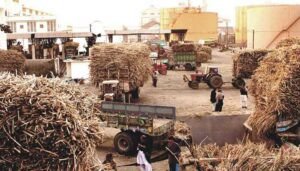” How is X (Twitter) access being blocked in Pakistan? ” | NewsPKOnline

”
In a move sparking widespread criticism, the government of Pakistan has cut off access to X, formerly Twitter, since February 17, 2024. This development has raised questions about internet freedom and censorship in the country.
A recent report by Bytes for all delved into the methods employed by the Pakistan Telecommunication Authority (PTA) to enforce this blockade. According to their website, Bytes for all is a human rights organisation and a research think tank with a focus on Information and Communication Technologies (ICTs).
American spaceship lands on Moon, first from private sector
A comprehensive analysis conducted by the Bytes for all on network traffic data and traceroute examinations sheds light on the methods utilised by the PTA for censorship, their implications, and the broader context of internet censorship in Pakistan.
The findings reveal a sophisticated censorship tactic involving the interception of HTTP requests made to X servers. By disrupting these requests, the Pakistan Telecommunication Authority (PTA) effectively prevents users from connecting to the platform.
A Content Delivery Network (CDN) may be understood as a network of servers distributed across various locations, designed to deliver web content quickly to users. One of the leading CDN providers, Akamai Technologies, is implicated in this censorship. This suggests collaboration between the PTA and CDN providers to enforce content restrictions.
The study was conducted through the use of Open-Source Intelligence (OSINT) tools. The investigation uncovered the deployment of TCP Reset (RST) packets by CDNs to terminate connections to X servers. This blocking mechanism effectively bars access to the platform within Pakistan’s borders.
The analysis further highlighted the deployment of HTTP blocking by the PTA, employing a Geo-blocking technique to intercept and disrupt HTTP requests made to X servers. This results in failed connections and denied access to the platform.
PTA also employed a Geo-blocking technique to intercept and disrupt HTTP requests made to X servers. This results in failed connections and denied access to the platform.
This blockade holds significant civil, political, and economic implications, particularly during a time of post-election unrest. The restriction impedes citizens’ ability to engage in online discourse, share information, and express dissenting opinions via X.
Despite the prolonged restriction spanning nearly five days, the PTA has remained silent, failing to provide any official statement regarding the rationale behind this censorship.
Google releases ‘open’ AI models after Meta
The situation underscores the critical need to safeguard digital rights and uphold freedom of expression, access to information, and online assemblies.
The report also puts forth recommendations to deal with such events in the future, which include advocating for progressive judicial interventions, championing digital rights, ensuring transparency and accountability from regulatory bodies like the PTA, exploring technological countermeasures such as virtual private networks (VPNs), and fostering international engagements to address instances of online censorship.
”






